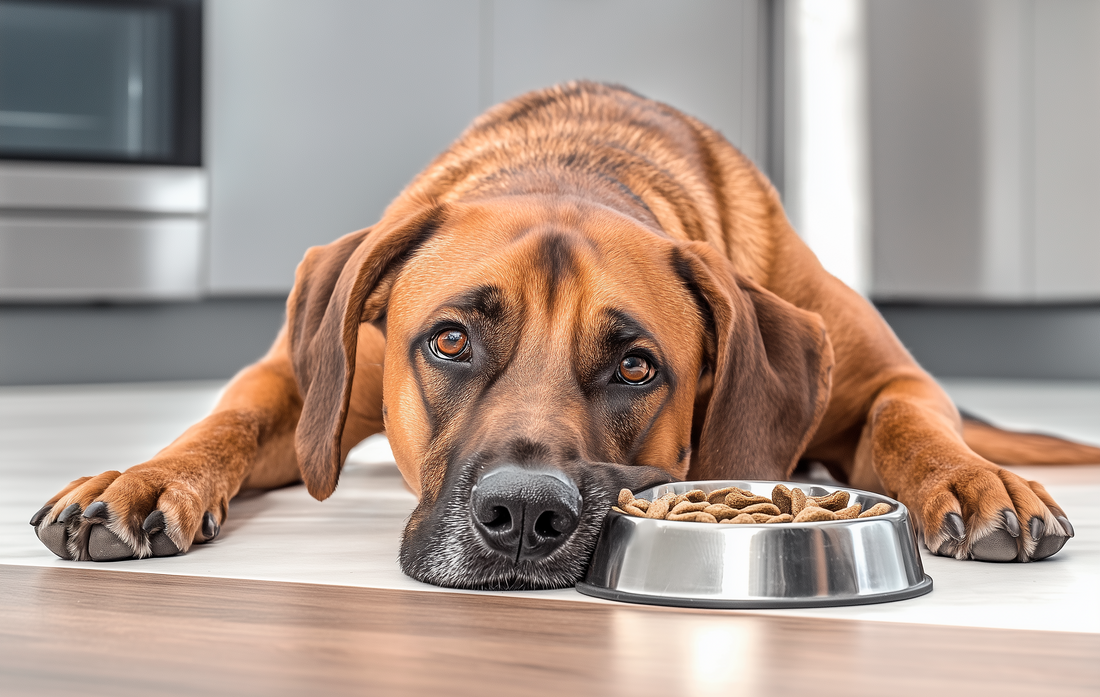
Food allergies in dogs
Hello! I’m Boris, and today I want to share some important information with you about food allergies in dogs. As you may know, I’ve struggled with food allergies myself, and I’d like to tell you how to help your pet deal with this problem. After all, proper nutrition is not just about care; it’s the key to your friend’s health and many happy years of life together.
Food Allergies in Dogs: What You Need to Know
Food allergies in dogs are quite a common issue that many pets face. They can manifest in different ways, and it’s important to recognize the symptoms early so you can help your friend in time. In most cases, allergies are triggered by specific components in food, such as proteins, grains, or dairy products.
Here are the main symptoms to look out for:
- Skin reactions: itching, redness, inflammation, flaking, or even hair loss.
- Digestive issues: vomiting, diarrhea, constipation, reduced appetite, or, on the other hand, constant hunger.
- Ear infections: itching in the ears, inflammation, unpleasant odor.
- General discomfort: fatigue, reduced activity, loss of interest in playing or walking.
If you notice even one of these symptoms in your pet, it may be a sign of a food allergy. In this case, it’s important to consult a vet as soon as possible to get an accurate diagnosis and develop a treatment plan.
How to Find Out What Your Dog is Allergic To
To accurately determine what your dog is allergic to, an elimination diet method is used. This involves feeding your pet a limited set of foods for several weeks to identify which ingredients are causing the allergic reaction. During this period, it’s important to choose foods that don’t contain common allergens, such as chicken, beef, or grains.
What should you choose during this time? It’s best to go for rare protein sources like horse meat, donkey meat, or camel meat. These types of meat are much less common in regular dog food and tend to trigger fewer allergic reactions.
Which Foods Most Often Cause Allergies in Dogs?
Did you know that the main culprits of food allergies in dogs are animal proteins and grains? Here’s a list of foods that most commonly cause allergies in dogs:
- Animal proteins: chicken, beef, dairy products.
- Grains: wheat, corn, soy.
- Gluten: found in wheat and other grains.
This is why it’s so important to avoid these foods when choosing food and treats for dogs with allergies, especially if your pet is prone to reactions to these components.
How to Control Your Dog’s Allergy
While food allergies can’t be completely cured, they can be effectively controlled by selecting the right nutrition. The key is to eliminate allergens from the diet and choose products that won’t cause unwanted reactions.
How to do this?
- Eliminate allergenic foods. For example, if your dog is allergic to chicken, remove it from the diet and opt for a protein that doesn’t cause reactions.
- Choose single-protein products. This means the food or treat contains only one type of meat. This approach helps minimize the risk of allergic reactions.
- Avoid artificial additives. It’s better to choose foods and treats that don’t contain chemical additives, preservatives, or colorings, as they can exacerbate allergic reactions.
How to Choose Hypoallergenic Treats for Your Dog?
Hypoallergenic treats can be a great addition to the diet of a pet suffering from allergies. Here are some important tips to help you choose the right treat:
- Single protein source. Ideally, the treat should contain only one protein source to reduce the risk of allergic reactions.
- No grains. Grains and gluten often cause allergies in dogs, so choose treats that don’t contain these ingredients.
- Natural ingredients. The fewer artificial additives and chemicals in the treat, the better for your pet’s health.

I personally check every treat I give my pet, and I can recommend Royal Rations. These treats are perfect for dogs like me, with allergies, because they contain only high-quality ingredients without chemicals or artificial additives.
What to Do If Your Dog Develops a Food Allergy?
If you notice that your dog is suffering from a food allergy, don’t panic! The first step is to consult a vet. They will help identify the exact allergen and recommend a diet that will be safe for your pet.
It’s important not to try changing your dog’s diet on your own without consulting a vet, as improper nutrition can make the problem worse.
What to Do If Your Dog Is Allergic to a Specific Protein?
If the allergy is caused by a specific protein, you need to completely eliminate it from the diet. For example, if your dog can’t tolerate chicken, you can replace it with a meat that’s less likely to cause allergies, such as horse meat, donkey meat, or even camel meat.
How does this work? Each meat has a unique set of proteins, and those found in chicken or beef can cause reactions in sensitive animals.
Conclusion
Food allergies in dogs are a solvable problem if you approach selecting their diet correctly. By following recommendations to eliminate allergens and choosing hypoallergenic products, you can significantly improve your pet’s quality of life. At Royal Rations, we know how important the right nutrition is, and we strive to ensure your pets can enjoy life while staying healthy and happy.
By choosing the right hypoallergenic treats and food, you not only protect your pet from allergic reactions, but you also give them the chance to enjoy tasty and healthy meals every day. Remember, your pet’s health is in your hands.
With love and care, your dachshund Boris! 🐾